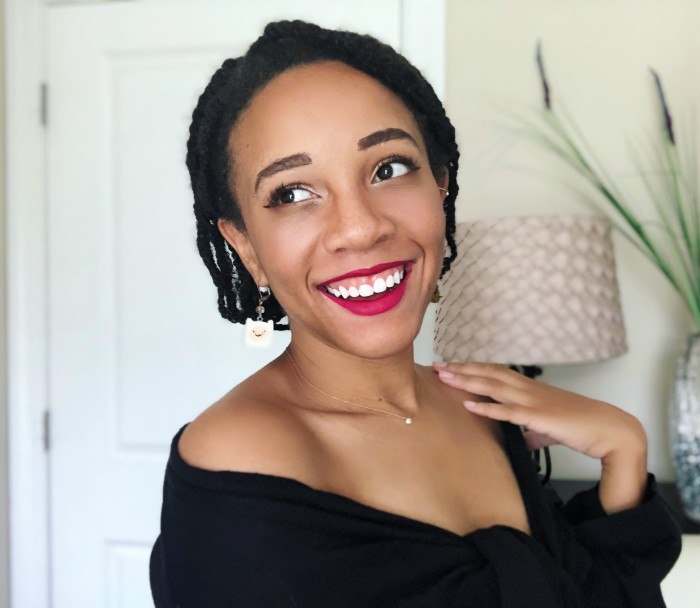Key Insights:
- Bee Law’s platform QuirkChat was born out of her hobbies and desire to help communities.
- The new social media platform has built-in controls to stem online abuse.
Bee Law’s life has been guided by a desire to help communities. At 16, she started a nonprofit for students with autism after witnessing one of her friends get bullied. Later on, Law pursued a full time career in cytogenetics, which she saw as a way of helping communities from a scientific perspective. Now, at 29, Law has launched QuirkChat, a video social network for anime and geek fans.
“I’ve always been just super nerdy,” Law told The Plug. “I grew up in Matthews, North Carolina, which is a small suburb outside of Charlotte. And with that, I was one of the few people at my school who was into anime, at least outwardly, and I am also a Black woman, so mixing the two, anime as well as being a Black woman, was very hard to find [other enthusiast], at least in the mid 2000s.”
Launched in April, QuirkChat already has tens of thousands of users, according to Law. The app allows users to create 15 second videos that other users can reply to, discussing all things geek and anime. Eighty-four percent of users identify as people of color and 56 percent use she/her pronouns, communities frequently underrepresented in all things geek.
Companies like Facebook and Twitter have been under fire for their inability to provide safe digital spaces for women and people of color. QuirkChat has focused on being intentional about their design, creating accountability to prevent online abuse on their platform.
“We have every user fill out a profile whenever they come on the platform and we encourage everybody to use their real names, as opposed to just coming up with a fake username,” Law said. “I know that sounds super simple, but something as simple as things being tracked back to who you are as a person just makes for less bullying and toxic behavior.”
QuirkChat also implements community self-moderation, giving users the ability to decide what should or should not be on the platform, with a feature called isecond, which allows users to vote on whether or not the content is inappropriate.
“Whenever you come across some inappropriate content, you’re able to report it and have a prompt come up to see if you’d like to get a second opinion from the community. So it flags that post to where anyone else that sees it, they are able to say whether or not they think that it should be taken down,” Law said.
The app also uses Artificial Intelligence (AI) to seek out different types of online abuse, not just racism.
“It’s not all just one type of harassment, or one type of bullying that happens, you have, of course, those that are geared towards racism, but also those geared towards the LGBT community, as well as misogyny,” Law, adding that QuirkChat is tackling those three by working with a third party partner to build out AI within the app that tackles community moderation. Right now, the tool only works for text but they are working to fit it for both video and photos.
QuirkChat’s innovative approach to social media has caught the attention of investors. The company is currently raising seed capital and has secured $750,000 in funding, including an investment of $250,000 from Chicago-based investment firm Greenhouse Fund, led by entrepreneur Kathryn Finney.
“As a Black geek and an investor who understands how Black communities are overlooked and untapped, I know firsthand why we need a space to connect and embrace our passions,” Kathryn Finney told The Plug. “Bee’s vision is exactly what we strive to support at Genius Guild – taking a creative approach to uplifting and unlocking the potential of Black communities.”
With the investment, Law has hired a Black woman-owned branding agency to help QuirkChat establish a brand that makes it sticky and noticeable in the community, aiming to grasp at least five percent of the market, about 3.5 million followers, within the year.
QuirkChat first began as QuirkTastic in the fall of 2019, a friendship finder app for convention goers. Law lived in San Francisco at the time, receiving investment from Snap Inc and opening an office in Venice Beach for a few months.
“Living out in those places, I realized that as a startup, especially like a seed or even pre seed startup at the time, it wasn’t the best use of capital to actually live in these places that are more expensive, and also like trying to find engineers in such a competitive landscape was really challenging and somewhat discouraging.” Law said.
Months after its launch, the coronavirus pandemic halted conventions and public gatherings, so Law pivoted and launched QuirkChat in April of this year – this time, from Tulsa.
“I realized that I didn’t need to be out there,” Law said. “For what we were building, yeah, it would be cool to be in like a more media centric place. But I think with the world where it is now, it hasn’t impeded on anything. “
“I’m able to get investors who live all over the world. I’m also able to partner with people who live in LA as well as New York. So for us, it made sense,” she added.
Law first moved to Tulsa after being accepted into the Tulsa Remote Program, a one-year program that offers a $10,000 grant and additional benefits to eligible remote workers who move to and work from Tulsa. Law has since become a part of their incubation space, 36 Degrees North.
“They want Tulsa to be known as a tech hub and with that, I’ve just been spotlighted as an entrepreneur here,” Law said. “I think I’ve gotten more support living in a smaller city than I ever would have living in San Francisco or LA.
“Being somewhat of a big fish is not a bad thing, and I don’t even see us that way. I just see us as a company that’s able to get a lot more support and like more interest because the area is smaller. So I think we’re going to grow here, but also it’ll be easier to see the impact that we have on Tulsa in the future when it comes to hiring as well as the growth of our company,” she said.








